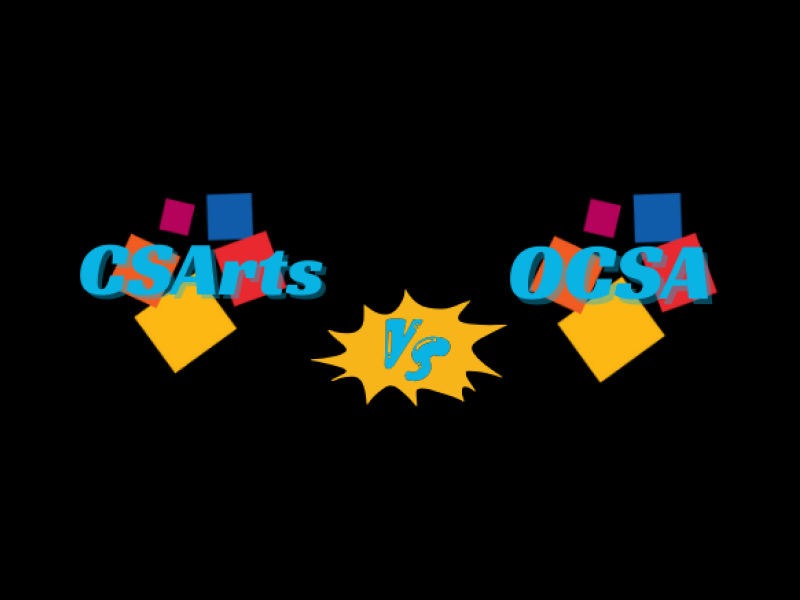In February, CSArts welcomed teachers from our sister school, Orange County School of The Arts, in order for both schools to be on the same page with educational philosophies and strategies. The focus of the visit was for OCSA teachers to adopt standards-based mastery grading, a system which CSArts implemented from its start.
CSArts’ grading scale is out in educational literature and is a common knowledge scale in the realm of progressive grading reform,” said Mrs. Read. A group of teachers, when founding CSArts, collaborated to eventually establish the current scale.
The collaboration between these two bastions of arts education was not a mere administrative formality but a deeply philosophical dialogue on the essence and implementation of standards-based mastery grading. Mrs. Thompson, the 12th grade AP Literature teacher, was one of the staff members who offered insights about the grading system to OCSA teachers. “It was kind of a philosophical meeting on why we grade this way,” Thompson said, underscoring the reflective and forward-thinking nature of the discussion.
One of the core concerns addressed by OCSA teachers was the potential impact of this transition on student engagement, particularly regarding formative assignments. Yet, as CSArts has demonstrated, standards-based mastery grading is not just about assessment; it’s about emphasizing quality education and eliminating the inefficiencies of “busy work.” This approach aligns closely with contemporary educational philosophies prioritizing depth over breadth and learning over grading.
Despite the prevalent trend of online gatherings, the decision to hold this meeting in person was a testament to the importance of human connection in educational collaboration. “They wanted people to talk to,” Thompson explained, highlighting the value of face-to-face interactions in building trust and understanding, especially when contemplating significant pedagogical shifts.
Although OCSA teachers were open to changes, Mrs. Read says that it’s unlikely OCSA would be willing to change its grading scale anytime soon. “With high schools that have been around for 30+ years, it would be difficult to have such a drastic change.” However, OCSA is looking to adopt CSArt’s philosophy of mastery- based learning, and Mrs. Read is optimistic that the meeting opened up discussion that eventually might form change around summative and formative assignments, extra credit, and retakes.
While the faculty at OCSA displayed an eagerness to explore this new philosophy, their journey is fraught with hesitations—a sentiment Mrs. Thompson and other teachers empathize with deeply, given CSArts’ own path to where it is today. The reception of this initiative shows the future of a broader educational landscape, where schools are increasingly considering standards-based mastery grading as a more equitable and accurate reflection of student learning.

 Behind the Curtain of Mean Girls: A “Fetch” Production
Behind the Curtain of Mean Girls: A “Fetch” Production